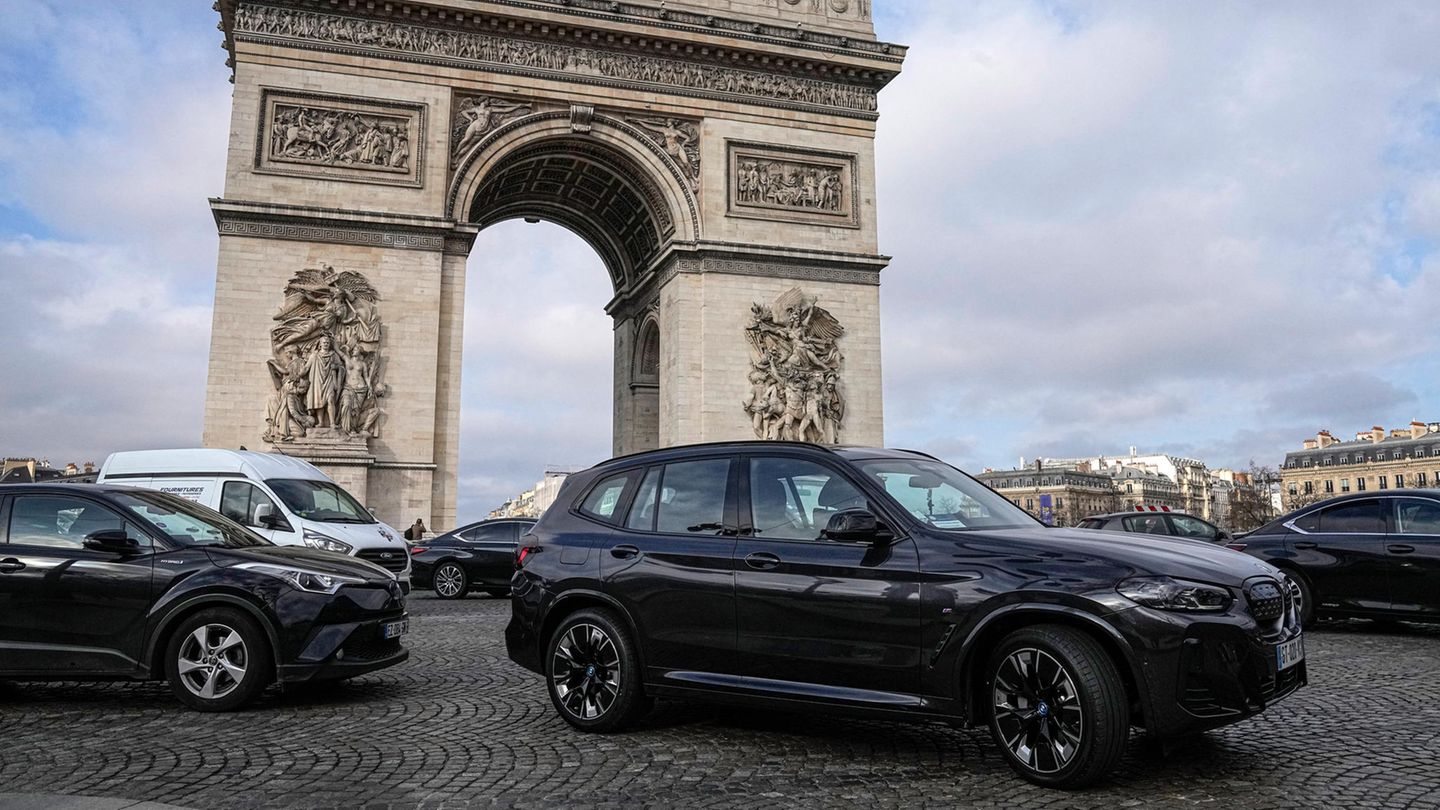Visitors to Paris with big cars will have to dig deeper into their pockets in the future. Another change in the wake of the traffic turnaround also affects motorists.
From the beginning of October, drastically increased parking rates for heavy cars will apply to visitors to Paris. One hour of parking in the center now costs 18 euros for heavy SUVs and other weighty vehicles, and 225 euros for six hours. Fares outside the center are slightly lower. Residents of the capital, craftsmen or the disabled, for example, are exempt from the regulation.
Heavy wagons caused increased environmental pollution
In a citizen survey in which just under six percent of those eligible to vote took part, 54.5 percent were in favor of increasing parking fees at the beginning of February. The tariff should apply to combustion engine and hybrid models weighing 1.6 tons or more and electric models weighing two tons or more. The regulation does not apply to private parking garages. The city argues that the heavy cars caused increased environmental pollution, took up a lot of public space and endangered traffic safety.
Monitoring the new regulation is relatively easy. Paid parking in Paris has been monitored for some time now using video vans that record the license plates of parked cars. Anyone who parks must first enter their license plate number at the parking machine. When the license plates are automatically compared, the city has access to the owners and vehicle data and therefore knows which weight class the parked cars fall into.
Increased fees part of the Paris transport transition
With the citizen survey, Mayor Anne Hidalgo gained support for a further step in the transport transition, which she and the red-green city government are pushing forward, even in the face of resistance. Years ago, she had several streets along the Seine closed to cars and made them accessible to pedestrians. The cycle path network in Paris is growing, which means the number of car lanes and parking spaces is being reduced. New green spaces are being created and the speed limit of 30 km/h has been introduced almost everywhere in the city. Just over a year ago, e-scooter rentals in Paris ended after a majority voted against the scooters in a citizen survey.
And from the beginning of October, despite protests from the transport minister himself, the mayor implemented another measure that upset many drivers. On the city highway, the busy “Périphérique”, the maximum permissible speed will be reduced from 70 to 50 km/h. Among other things, this should mean less noise for the many residents of the expressway. However, the average speed on the ring motorway during peak times is well below 50 kilometers per hour.
Source: Stern
I’m a recent graduate of the University of Missouri with a degree in journalism. I started working as a news reporter for 24 Hours World about two years ago, and I’ve been writing articles ever since. My main focus is automotive news, but I’ve also written about politics, lifestyle, and entertainment.




